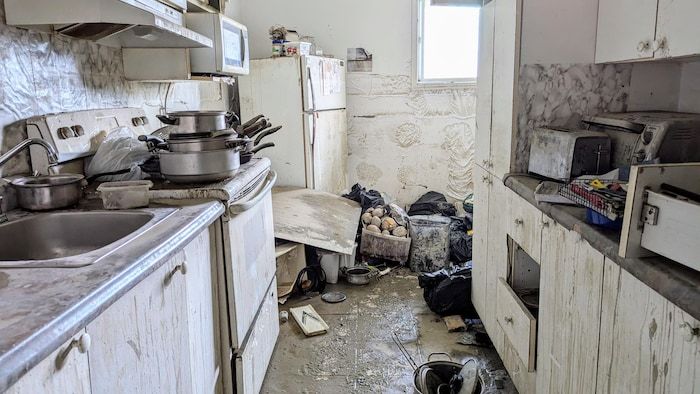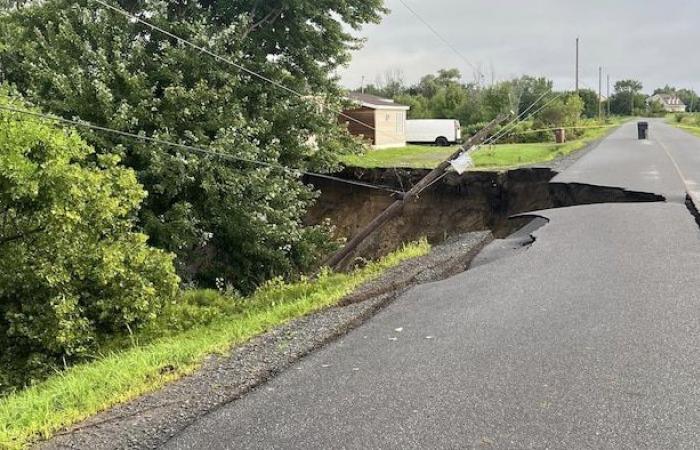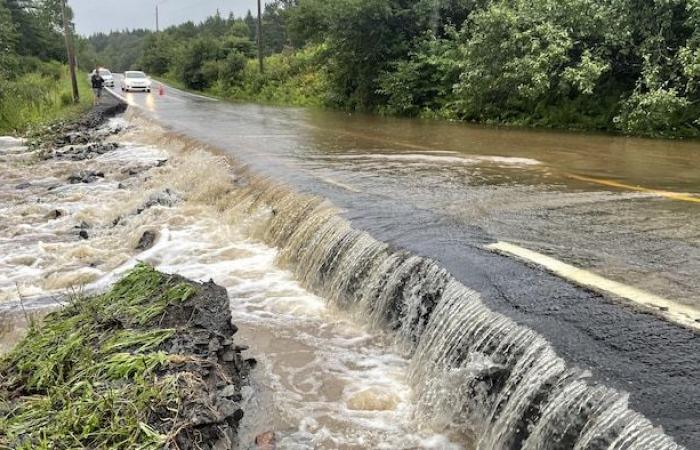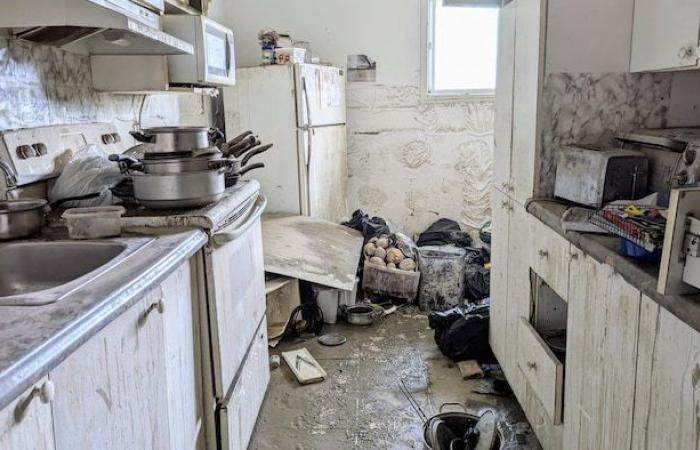The Quebec government has paid less than 10% of the approximately 10,000 compensation claims it has received since the remnants of Hurricane Debby passed through in August, which caused severe flooding and extensive damage.
Four months after the storm, a total of 10,076 claims were received. Of this number, Quebec paid compensation in 720 cases, or approximately 7%, mainly in Mauricie and Lanaudière.
In Montreal, where the storm dumped 150 millimeters of rain, the government reimbursed only 9 of the 1,900 compensation claims it received. For its part, the City of Montreal received more than 4,600 complaints, but paid no compensation.
In Laval, the province paid compensation in 21 cases out of more than 2,100. In Montérégie, 39 requests out of more than 1,700 were honored.
In total, the Quebec government reimbursed affected residents approximately $24 million.
Although some cases are still open, many residents who suffered damages amounting to tens of thousands of dollars feel abandoned by municipal and provincial authorities.
Window dressing
These victims feel that the different levels of government have given them reason to hope for help and then made them understand that they should fend for themselves.
It was just window dressing
lamented Isabelle Leblanc, whose basement was flooded, causing damage amounting to $45,000.
According to a spokesperson for the Ministry of Public Safety, the current data is preliminary, since many files are still active, awaiting supporting documents from applicants. Homeowners also have one year to file a claim. And the number of paid claims has increased in recent weeks.
Open in full screen mode
The municipality of Yamachiche, in Mauricie, published photos on Facebook of the damage caused by the remains of tropical storm Debby, the day after its passage.
Photo: Facebook / Municipality of Yamachiche
The storm hit southern Quebec on August 9 and 10, washing away roads, knocking out power to half a million homes and flooding thousands of homes. In many areas, basements filled with several meters of sewage after sewers were overwhelmed, destroying floors, walls and furniture.
In September, the Insurance Bureau of Canada estimated that the storm was the costliest weather event in Quebec history, surpassing the 1998 ice storm. According to early estimates, the remnants of Hurricane Debby caused nearly $2.5 billion in insured losses.
In its economic update published in November, Quebec estimated that the damage caused by Debby would cost the government $250 million, including $100 million for individuals and businesses through the emergency financial assistance program. of disaster.
Open in full screen mode
The passage of the remains of Hurricane Debby has become the costliest meteorological event in the history of Quebec.
Photo: Courtesy: Pierre Guénard
Confusion
After the storm, Premier François Legault suggested his government could temporarily expand a provincial aid program that aims to financially support disaster victims.
The program usually compensates victims for damage caused by overflowing lakes and rivers, but Mr. Legault said it could be extended to include sewer backups. Private insurance generally covers sewer backups, but many people have suffered more damage than their insurance could cover.

Open in full screen mode
The damage caused by Debby is impressive in Louiseville.
Photo: - / Andréanne Lemire
Why was there a sewer backup? It’s because there was a flood
underlined Mr. Legault during a visit to Louiseville, in Mauricie, a few days after the passage of the storm.
So, at some point, you have to use common sense
he mentioned, opening the door to putting in place exceptional programs to respond to an exceptional situation.
The news made waves within several municipalities, which transmitted the message to their residents. However, in the weeks that followed, it became clear that the rules of the program had not actually changed.
Public Safety assures that it has adopted a flexible approach to evaluating claims and notes that sewer backups caused by the overflow of a nearby watercourse may be admissible.
The program website encourages people who are unsure of their eligibility to submit claims.








